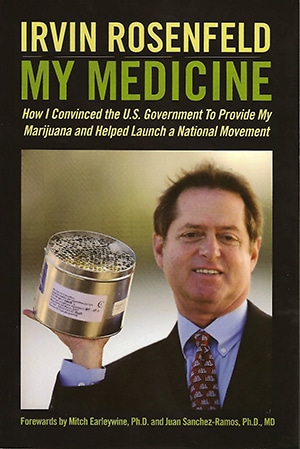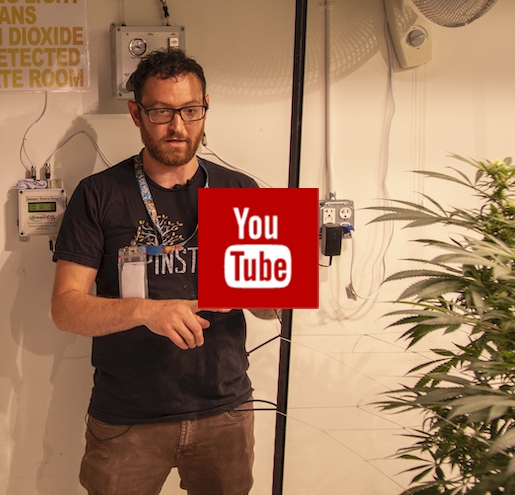
From the NFL to the Greenhouse: Calvin Johnson Jr.
[ad_1]
Torn rotator cuffs. ACL and MCL tears. Shoulder separation. These are some of the most common injuries sustained on the football field. Pro players like former Detroit Lions wide receiver and 2021 NFL Hall of Fame inductee Calvin Johnson Jr. know these terms all too well.
In his nine seasons in the top league of one the most demanding sports known to man, Johnson picked up more than a few knocks, leading to chronic pain and inflammation.
Cannabis’ unique properties allowed Johnson and his teammates to medicate naturally, avoiding the myriad pitfalls associated with opioid treatment. For Johnson, it was a logical process to take the passion he has for the plant and turn it into a business that could help communities experience the same healing that enabled him to get back on the field week after week.
That’s why, when he retired from an illustrious career that saw him become one the greatest wide receivers of all time, he turned to cannabis cultivation and retail.
“I had a passion for cannabis since I started using it when I was in the league,” Johnson said. “I knew there was some healing behind it because it kept me away from the opioids and what was prescribed for the most part in those days. For one, they didn’t sit well with me. But I always was in the mindset of putting natural things into my body. So cannabis being one of those things, I really believe in the healing powers.”
Shortly after retiring in 2016, Johnson entered the cannabis space, buying up real estate for cultivation. The ventures ultimately led to Johnson co-founding his cannabis brand, Primitiv, in 2021 — the same year he was inducted into the NFL Hall of Fame.
According to Johnson and his team, Primitiv is dedicated to the advancement of cannabis as a form of elevated wellness, believing that the plant holds incredible potential as a healing agent. It is an ethos he and his fellow co-founders, many of whom are former Lions teammates, live and breathe, as many of them have personally benefited from plant medicine.
Only a year on, Primitiv boasts a 12,000-square-foot grow facility with over 3,600 square feet of canopy space that can grow more than 2,000 plants at any given time, along with a flagship dispensary in Niles, Michigan.
Primitiv also recently teamed up with FOHSE, Inc., a leader in the cannabis cultivation space — specifically LED lighting. LEDs have become a game-changer for cultivators in the last few years due to their broad-spectrum UV qualities and low energy strain compared to high-powered sodium lights and other alternatives.
Cannabis & Tech Today Editor-in-Chief Charles Warner recently chatted with Johnson about his newest venture and collaboration with FOHSE. This interview has been edited for length and clarity.
Cannabis & Tech Today: How did you enter the cannabis space?
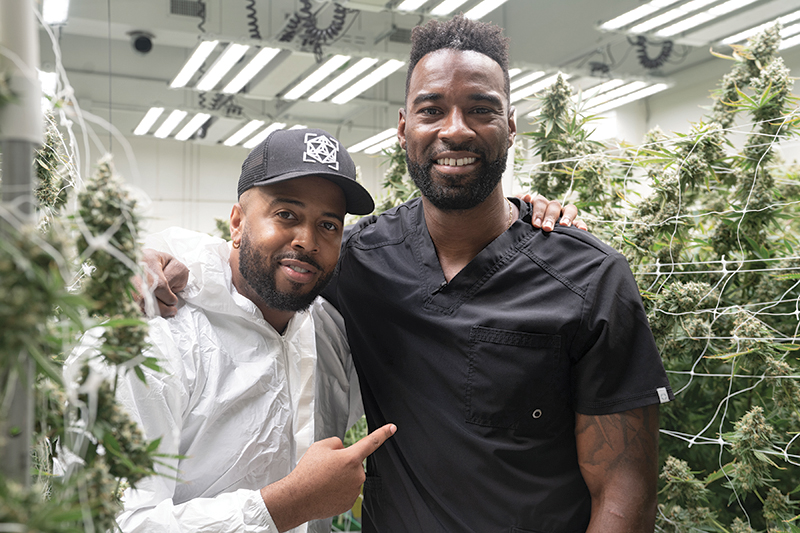
Calvin Johnson: I had a passion for cannabis since I started using it when I was in the league. I knew there was some healing behind it because it kept me away from the opioids and what was prescribed for the most part in those days. For one, they didn’t sit well with me. But I always was in the mindset of putting natural things into my body. So cannabis being one of those things, I really believe in the healing powers.
I was just like, ‘Hey, we have the opportunity to get into the business here in Michigan through real estate.’ And we were like, ‘Hey, we could be the landlords here or we could put the team together.’ And we proceeded to do the latter. And now four, probably going on five years later, we’ve been in the cultivation space and opened up our retail this past year.
So it’s been a journey, and FOHSE [lighting] is new for us. Being able to implement them into our facility is one thing that’s going to do great things for our productivity, and save costs, along with creating great yields for us.
C&T Today: Tell me about your journey with Primitiv.
CJ: We launched the brand in early ’21. We branded ourselves Primitiv because cannabis being a plant medicine is one of the earliest known healers. Our plant medicines, cannabis being one of those, are truly primitive in name.
So that’s where we got our name, and we wanted to focus on the wellness side of the business. We saw there are a lot of benefits. Especially for myself being an athlete, seeing all the benefits I was able to have, especially when it comes to inflammation.
And then, just knowing that this is an untapped industry. There are so many applications to be made from cannabis that it is exciting to have the opportunity just to be in the industry from the beginning.
As of this year, we’ve become full vertical. We started in cultivation here in Michigan and worked our way into getting a processing and retail license. So we have the ability to do many things in this industry and obviously, flower is one of the things, but being innovative will be our second act as far as being in this industry and being a trailblazer.
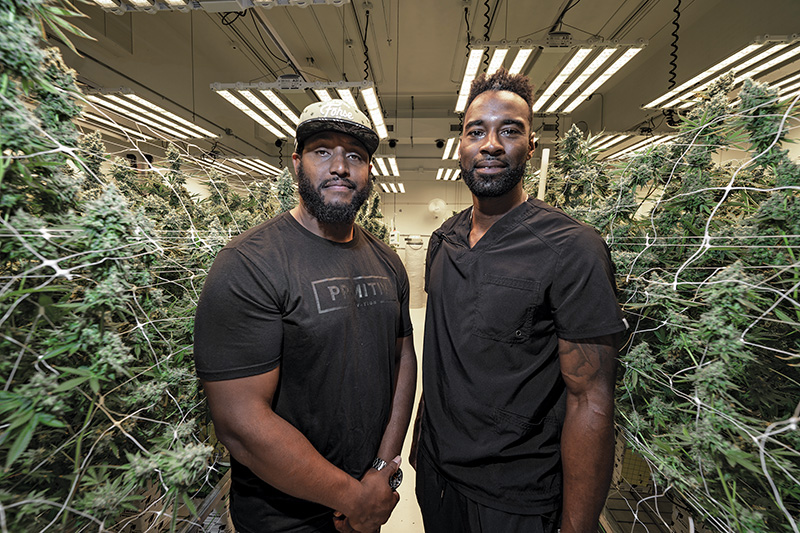
C&T Today: Michigan’s a pretty good market, isn’t it?
CJ: It’s a good market, but there’s a lot of saturation now when it comes to different licenses. You just have to really be conscious of your next move because if you’re really trying to have a whole bunch of cultivation and you don’t have an outlet to back them up in retail, then you have to ride the wave in the market.
C&T Today: How did you start your relationship with the lighting company FOHSE?
CJ: We started the relationship in early ’21 by buying some lights. We wanted to just get more productive with our numbers, and we just wanted to have a better yield. We felt like LEDs were the play of the future.
So, we did our homework and at the end of the day, FOHSE was the one that just was coming out on top from our research. Our cultivators’ research, our consultants’ research, we were all able to agree. So I think we purchased a room worth of lights, and we had success with them. That just led to further conversations and into where we are today.
C&T Today: What have you noticed in terms of yields since making the switch to LED? You’re obviously involved with all the aspects of the business, you’re not just a name on it.
CJ: Yeah, absolutely. We built this thing from the ground up. We are not like… You usually see somebody come in and use the advertising and whatnot. We started this thing. We’ve done every job in the facility.
Whether we do it very well or not, that’s left up in the air [laughs]. But we’ve been up to every job in this whole … from the retail side to cultivation … Not necessarily processing. That’s a little bit out of our realm. But definitely have the teams and the people in place to do those things.
With yield, I remember our first harvest, I think we hit maybe around five or six, or just under six pounds a light. But it was something tremendous. It is ridiculous.
You don’t believe it when you hear it. But the funny thing is, all of the people that we’ve talked to that used FOHSE lights in their cultivation, they were saying they were getting around that six-pound number. I think somebody might have even mentioned seven.
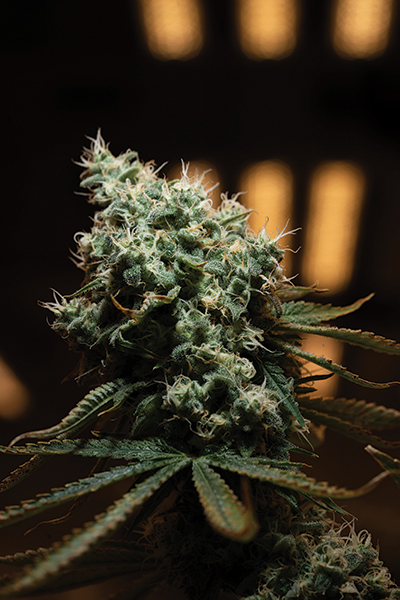
So I’m just sitting here, like ‘No way.’ But lo and behold when we did harvest, we had those results on our first run, which is amazing. So it just goes to show you, it’s something going on with those lights, man. They’re great quality, and we’re able to tune the spectrum, which is awesome, being able to customize that.
C&T Today: It sounds like you’ve got a great team there. Is there anything that you noticed you have brought over from your culture of being an athlete that applies to your teamwork now? Whether it’s communication or work ethic. What translates from your days as an athlete to now being an entrepreneur and having a team?
CJ: Oh yeah, there’s so many different things, and all those that you mentioned: perseverance, hard work, but understanding that there’s going to be obstacles.
As a football player, you don’t win every play out of those victories, but understanding that when there is a setback, you have to get your mind and attitude and effort back to 100% going into that next place. So, if there’s something that happens at work, we need your mind to get back and reset so that we can continue to find solutions to issues.
C&T Today: Can you speak to the healing part of the plant? You mentioned that even when you were playing, you tried to stay away from opioids.
CJ: For sure. Definitely didn’t have the knowledge base when I was playing that I have now about just our endocannabinoid system and how it reacts to different cannabinoids, terpenes, and compounds. Rewinding to my playing days, I used it for getting great sleep, to help out with the pain.
It helps knock the edge off that pain. Knowing what I know now, and the new, different applications that are coming, it would’ve been more of a part of my regimen had I had the knowledge that I have now. At the same time, the technology wasn’t where it was today when I was playing.
So, the only way was to roll up a joint or do a bowl or use a volcano to affect that healing. But it was awesome for me, for just recovery, because sleep is a huge part of that recovery. Being able to deal with the pain, that’s part of quality of life.
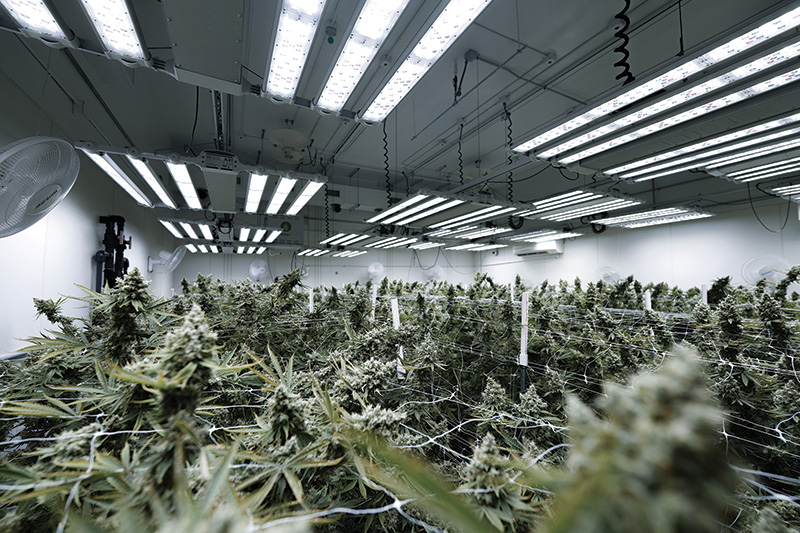
C&T Today: When you played, cannabis was frowned upon. Players would be suspended. Was it just common knowledge among the players that cannabis could help with sleep and recovery?
CJ: I think within the culture of cannabis, there’s always been that knowledge that this has been a healing agent. But the way it’s been demonized over the last however long, a lot of people saw it as taboo until you actually had an experience with it.
But, at least half the players in the league consume cannabis… Or, I don’t know what that number is now because I’m not there. But it’s a very large percentage, especially with the way the rules have
relaxed now.
C&T Today: Do you think there will be a day when cannabis or CBD will be just a normal part of the trainer’s regimen?
CJ: I believe at some point it will be a common practice. It’s funny because you start to see when there’s no other resort that doctors have, whether it’s a cancer patient or what have you, they send them to try cannabis.
And there’s been some success stories there, too. A lot of times it’s about quality of life. But, yeah — 100%. Everybody deals with pain, everybody deals with inflammation, and everybody deals with needing to recover, whether it is hydration or sleep, those are all things that cannabis can directly affect.
All images courtesy of FOHSE. This article first appeared in Volume 4 Issue 3 of Cannabis & Tech Today. Read the full issue here.
[ad_2]

